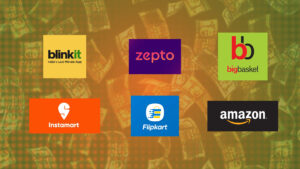
Global quick service restaurants (QSRs) like McDonald’s, Burger King, and Pizza Hut are grappling with a shifting landscape in India. Despite their longstanding dominance, the influx of new-age food brands and the convenience offered by food delivery platforms like Zomato and Swiggy have significantly altered consumer preferences.

Ravindra Yadav on the Struggles of Global QSR Giants in India: Why Discounting Might Not Be the Answer
Global quick service restaurants (QSRs) like McDonald’s, Burger King, and Pizza Hut are grappling with a shifting landscape in India. Despite their longstanding dominance, the influx of new-age food brands and the convenience offered by food delivery platforms like Zomato and Swiggy have significantly altered consumer preferences.
Ravindra Yadav, a partner at Technopak, sheds light on the challenges faced by these global brands. He describes their recent aggressive discounting strategies as “desperate measures” aimed at luring back customers to their stores. Yadav warns that while these tactics might drive short-term traffic, they pose a significant risk to the brands’ long-term health. “If they focus on value, they will be impacting their profitability or compromising on the quality of the product,” he adds.
This shift in consumer behavior is not just a matter of price sensitivity. The modern Indian consumer, particularly Gen Z and millennials, are more experimental and demand unique experiences from their dining choices. With a plethora of new brands like Good Flippin’ Burgers and Burger Singh offering innovative menus and value pricing, traditional QSRs are finding it increasingly difficult to compete.
Moreover, the rise of food delivery aggregators has empowered consumers to explore a wide variety of options from the comfort of their homes. The ease of ordering and the broad selection of cuisines available at their fingertips mean that customers no longer feel the need to visit physical QSR outlets. This trend is further exacerbated by regional chains and premium restaurants that are also leveraging these platforms to reach a wider audience.
Analysts note that global QSR brands must either innovate their offerings or enhance the overall customer experience to stay relevant. The current landscape demands more than just brand recognition; it requires adapting to the evolving preferences of a dynamic consumer base.
As these international giants struggle to maintain their foothold in India, the key to their survival may lie in balancing value with quality, while also embracing innovation to meet the changing demands of the modern consumer.
Read more at: https://timesofindia.indiatimes.com/city/mumbai/global-qsr-brands-lose-mojo-in-india/articleshow/112614005.cms





